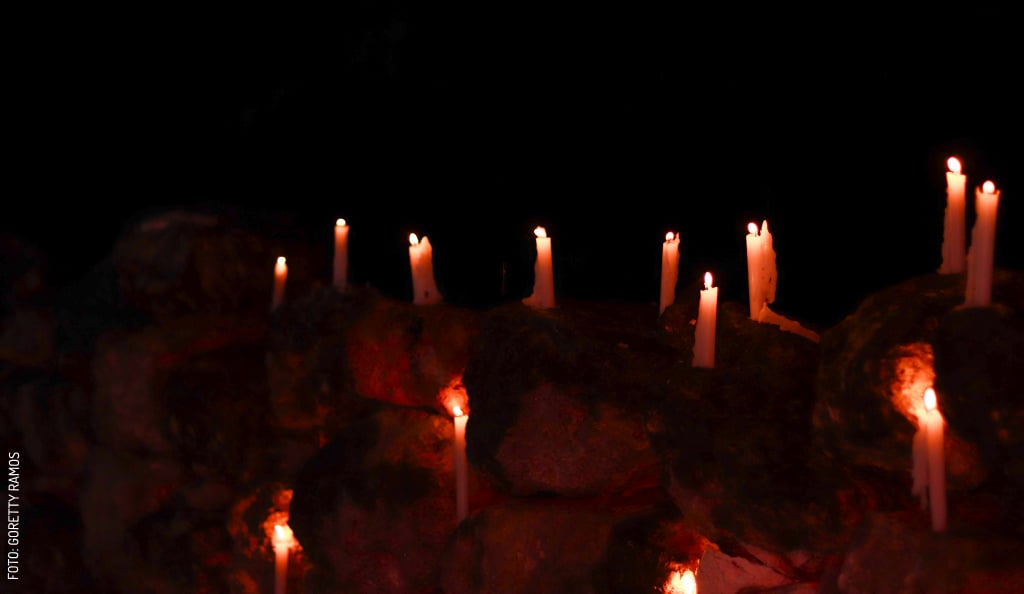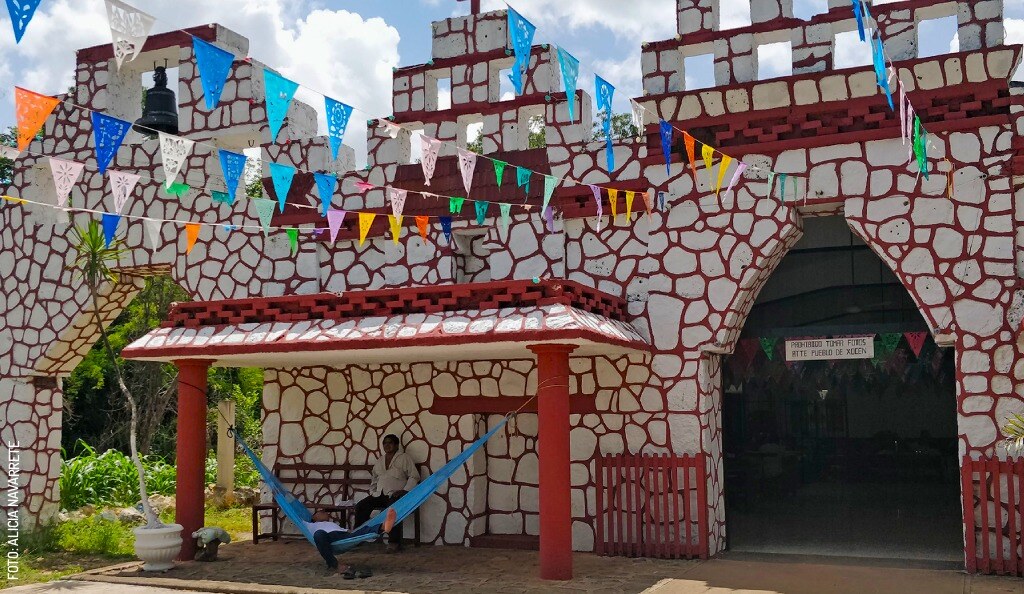
Janal Pixan celebrations in Yucatán villages: Xocén and Tabi
Janal Pixan in Xocén and Tabi, Janal Pixan celebrations in Yucatán villages: Xocén and Tabi
There are no two communities, villages, or cities in Yucatán that celebrate Finados or Janal Pixan the same way. While similar, they all have little (or big) differences. As life has had it, I’ve come across people with whom I’ve spoken to about how Janal Pixan is observed in their villages and in their homes: Xocén (pronounced shock-KEN), near Valladolid, and Tabi, a small village just a few minutes away from Sotuta.
Xocén is visited by a messenger that announces the arrival of the souls in late October and early November: a bird called eastern wood pewee (Contopus virens). Its song is similar to the Maya phrase for “I’m hungry,” and it’s also a sign for the locals: Janal Pixan is upon us. Miguel Nahuat Tun, a guide at Xocén Birding Trail, says that everywhere in town you’ll hear people rejoicing that “November 2 is coming, we’re having pib.”
Meanwhile, in Tabi, there is no messenger bird, but the excitement around the festivities is just as everpresent. The preparations start days in advance, Lupita Chan, the sacristan of the Tabi church, says. People clean up their lots and the cemetery, and set up the altar so that, at midnight on October 30, the arriving souls will be greeted. The Tabi altars are set up inside the homes, though some people have them be visible from outside. On them they’ll arrange candles and local flowers (purple xmul, red xté, and yellow xpujuk, as well as other white wild varieties).
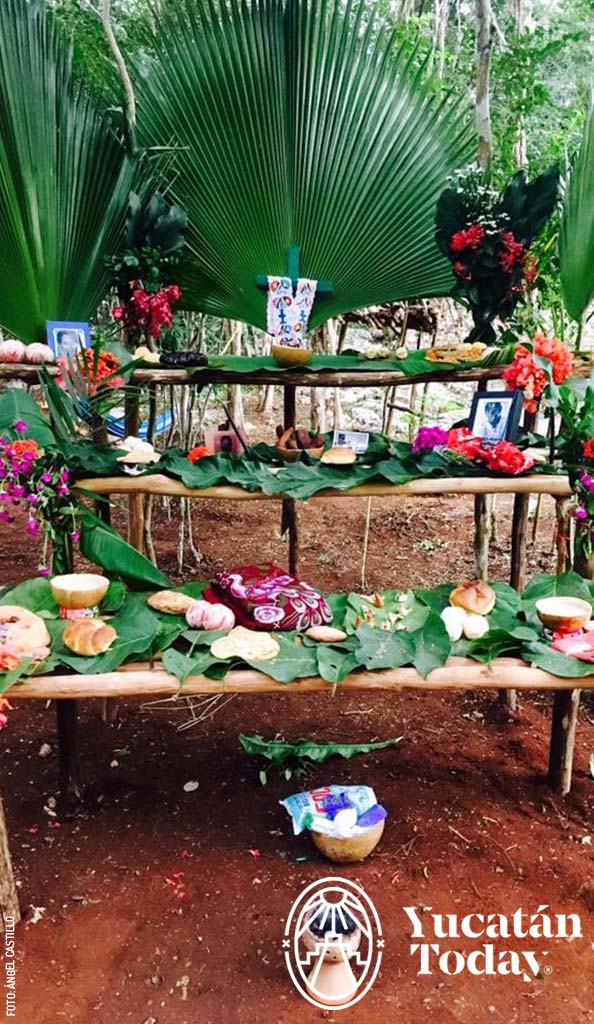 Within the first minutes of October 31, you’ll hear children on the street, laughing, talking, playing…But if you go out to see them, they’ll be nowhere to be found. “The souls are arriving, you can hear them,” Miguel says. These presences are also felt in Tabi, as they are in all of México. Around this time, a different energy can be felt; neither Miguel nor Lupita —separately, mind you— can quite describe it.
Within the first minutes of October 31, you’ll hear children on the street, laughing, talking, playing…But if you go out to see them, they’ll be nowhere to be found. “The souls are arriving, you can hear them,” Miguel says. These presences are also felt in Tabi, as they are in all of México. Around this time, a different energy can be felt; neither Miguel nor Lupita —separately, mind you— can quite describe it.
Very respectfully, Xocenenses get ready for Janal Pixan, which they celebrate for eight days beginning on October 31. In contrast, Tabi locals believe that the souls stay to visit throughout the whole month of November. In Maya culture, the 8th day is known as “biix” (in Maya) or ochovario (in Spanish); for Xocenenses, that’s when souls begin to leave. Despite their different beliefs, that’s when the Mukbilpollos (also known as pibes) are cooked, and related prayers and offerings are made.
Did you know that mukbilpollos are precisely the one dish the souls can take back with them? If you were to offer them a stew or any dish with liquid, they’d spill it along the way. The pib, in addition to being associated with death by being buried, is far easier to carry.
What happens between October 31 and the biix? It’s time to pray, make offerings, and warmly interact in spirit. Altars are prepared on a rectangular table, whose four legs symbolize the four cardinal directions, very important in Maya culture. On them you can find anything and everything (both things and food) that the deceased enjoyed in life, among other things, like pictures, food, and a wooden cross. In Xocén, additionally, they place a ball of corn masa and a jícara (calabash) with water, which are discarded once the prayers are done; under the table, leks (dried gourds) with corn, egg, and soap are set up.
Once the table is ready, the prayers begin before each meal. For breakfast, for example, Lupita and Miguel both say, everyone gets up at 3 am to start making the chocolate bars. In Xocén, the bars are made a couple of days in advance. Once the hot chocolate is mixed, this is laid on the table with the bread. At lunchtime the prayers resume, when the favorite meals of the deceased are served; the most usual are relleno negro and escabeche, the ones most villagers grew up having.
At night, candles are lit at the homes’ doorways, and on walls and albarradas (stone walls), to light the souls’ way. There is also incense and, if the altar is for an adult, their favorite liquor.
Always, once the prayers are finished, it’s time to share the meals with family and neighbors. You only try them, since, as Miguel puts it, “you can’t really feel like you’re full, since the deceased already took the food’s essence.” While in Xocén some families carry on praying for the entire month, in Tabi, they continue feeding the souls, and on the last day of November, they make the final offering: the delicious farewell pib.
Photography by Ángel Castillo, for its use in Yucatán Today.
First published in Yucatán Today print and digital magazine no. 418, in October 2022, by the name of "Janal Pixan in Xocén and Tabi".

Author: Olivia Camarena Cervera
Yucatecan communicologist. Writer, blogger, and bookstagrammer in her spare time. She also experiments with TikTok.
In love with Yucatán? Get the best of Yucatán Today delivered to your inbox.
Related articles
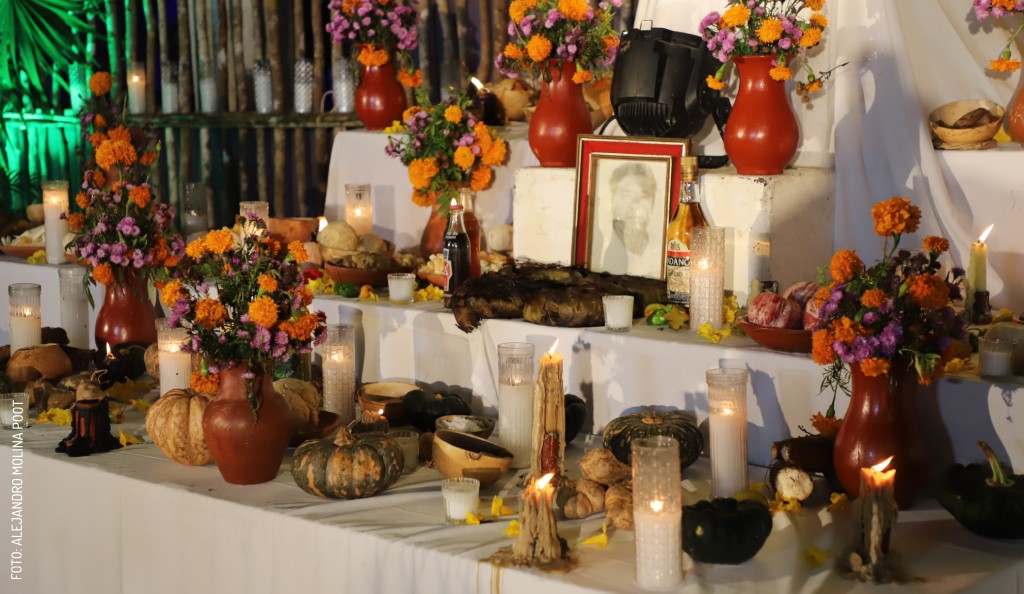
Janal Pixan, Day of the Dead or Finados: What’s the Difference?
Have you heard about the Janal Pixan, the Day of the Dead in Yucatán? Is it Janal or Hanal Pixan? What are “Finados”? Here’s what you need to know.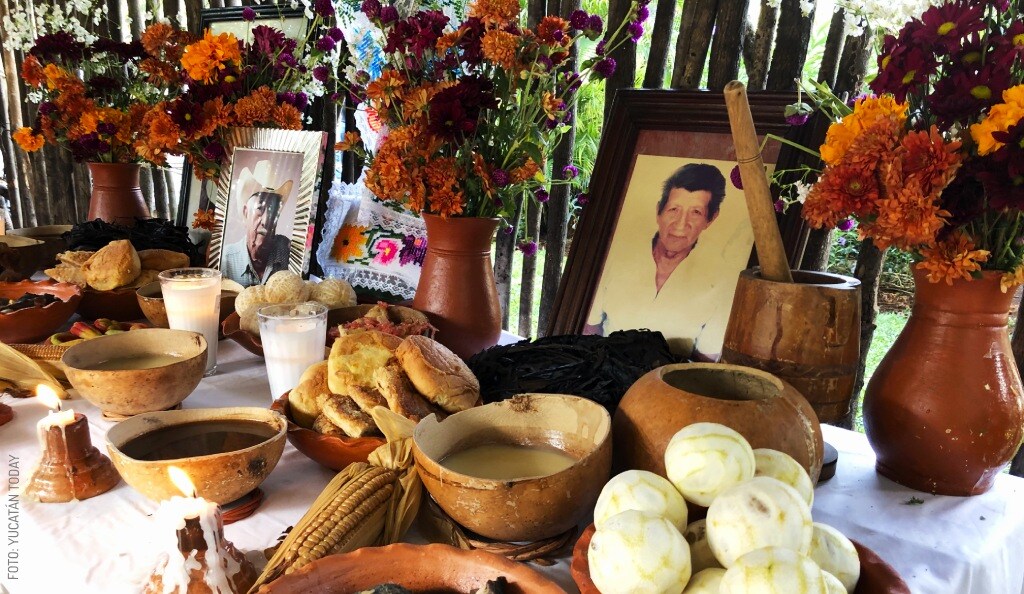
The Authentic Practices of Days of Finados or Janal Pixan
Learn the traditions of the Maya on Days of Finados, the true purpose of altars and offerings, and their correct execution.